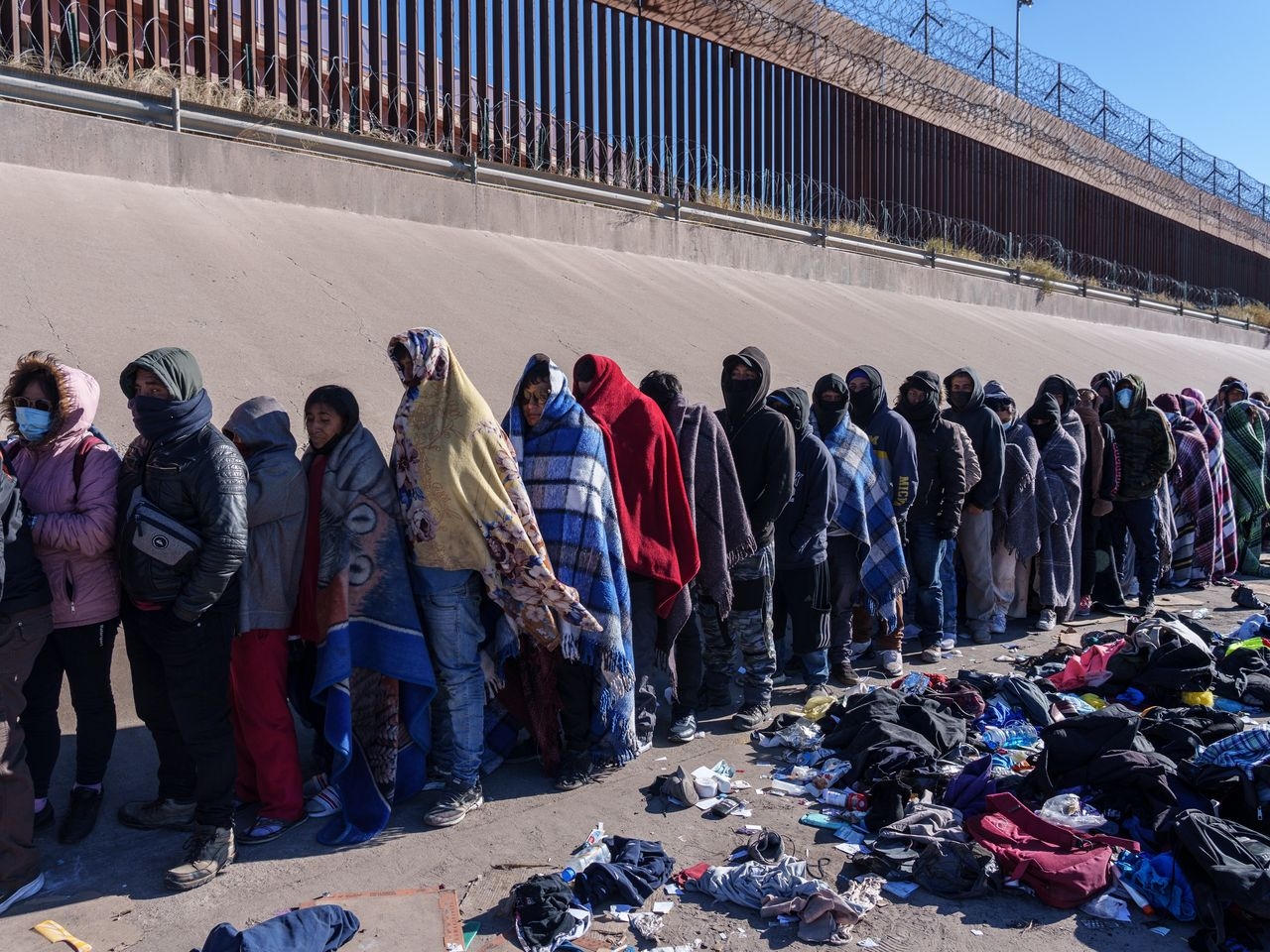As the termination date for the Trump-era Title 42 policy rapidly approaches, a policy that allowed the swift expulsion of certain immigrants at the border due to the Covid-19 pandemic, America braces for a likely surge in border crossings. The policy is set to expire on May 11, 2023, leaving the United States immigration system on the precipice of a crisis, with readiness for the potential fallout being called into question.
With an expected surge in border activity, the Pentagon is moving to dispatch more active-duty troops to the US-Mexico border. Their purpose is not law enforcement, but rather to alleviate the strain on Department of Homeland Security agents. In the meantime, border towns are teeming with migrants, and mayors in northern cities are expressing their discontent with the influx of migrants being bused from Texas. These mayors are now demanding decisive action from the federal government.
The situation is poised to escalate once Title 42 is discontinued. The daily encounters of US border agents with undocumented immigrants, currently averaging around 7,000, are projected to surge dramatically, despite warnings from the State Department and DHS about the implementation of a stricter policy related to border crossings.
The Biden administration has attempted to deter migrants from crossing the border, assuring that those caught will be turned away and may face a ban from reentry. There’s a proposal to establish regional processing centers in countries like Colombia and Guatemala, enabling migrants to apply for US entry without risking the dangerous trek through Central America and Mexico. However, with an estimated 36,000 migrants already stationed along the border in northern Mexico, waiting for the end of Title 42, this proposal may face significant resistance.

With the cessation of Title 42, the US will revert to using Title 8 authority to expel anyone entering the border unlawfully, imposing a minimum five-year ban on reentry to the US. Asylum-seekers crossing the border without prior asylum application will be expelled under this Title 8 authority, alongside a newly proposed regulation. This stricter approach, similar to a plan proposed by the Trump administration, has left immigration advocates in a state of confusion.
The predicament is equally severe for asylum-seekers already within US borders. In El Paso, Texas, a state of emergency has been declared as migrants overwhelm shelters and take to the streets for lodging. Elsewhere, asylum-seekers in border towns are looking to travel further north to reunite with relatives or friends already residing in the US.
Adding to the complexity of the situation, Texas has been shipping thousands of migrants to cities like New York, Chicago, and Washington, DC. This move has incited fury from mayors like New York City’s Eric Adams. Adams has accused Texas Governor Greg Abbott of specifically targeting cities with Black mayors and has called on the federal government to stop FEMA funds to Texas border cities that are using federal dollars to bus migrants north.
The imminent expiration of Title 42 underscores the urgent need for a comprehensive review and overhaul of US immigration policy. As it currently stands, the policy is poised to change not as a result of thoughtful debate and legislation, but because the declared public health emergency is officially ending.
Clear appeals have been made for a more organized and fair policy regarding asylum claims, and for improved coordination among local, state, and federal governments on how to manage those already within the US. Amidst the political discord that immigration often ignites, there is an undeniable reality: the US needs immigrants to counter labor shortages and bolster social safety net programs on the verge of insolvency.
The coming weeks and months will undoubtedly put the Biden administration to the test as the US navigates this immigration crisis. With the discontinuation of Title 42, the temporary fix holding up US immigration policy is about to be torn off, revealing a complicated and contentious terrain.
The impending challenges are monumental. A delicate balance must be struck between maintaining the integrity of the immigration system and respecting the human rights of those seeking a better life in America. This will necessitate not only the enforcement of immigration laws but also the formulation of new, more empathetic policies that address the root causes of migration.
The Biden administration also needs to foster greater cooperation and understanding between the federal government and local and state officials. The management of the influx of migrants cannot fall on the shoulders of border states alone; it needs to be a collective responsibility. This necessitates open lines of communication and a commitment to treating migrants not as burdens, but as individuals seeking safety and opportunities.
In the long run, comprehensive immigration reform is crucial. This includes a clear, fair pathway to citizenship for undocumented immigrants already in the country, an effective asylum system that respects international law, and reforms that address the root causes of migration from Central America and other regions.

Moreover, it’s essential to remember that America is, at its core, a nation of immigrants. Throughout history, immigrants have enriched the country’s cultural tapestry, boosted its economy, and contributed to its growth and prosperity. As such, any approach to immigration must honor this legacy and ensure that America continues to be a beacon of hope and opportunity for all.
Navigating this crisis will require courage, compassion, and compromise. But, if successful, America has the potential to emerge with an immigration system that is fair, humane, and reflective of the values it cherishes. The next few weeks and months will reveal whether the nation is up to the task.
The road ahead is daunting, but not insurmountable. The termination of the Title 42 policy is a pivotal moment for American immigration policy, marking the end of one era and the beginning of another. The challenges presented by this transition will test the nation’s capacity for compassion and pragmatism. However, they also present an opportunity to reform and rebuild an immigration system that is humane, just, and true to the ideals that America embodies. The coming days will set the course for this endeavor. It’s a task that demands not only political will but also a reaffirmation of the country’s enduring belief in the promise of the American Dream.
©world-news.biz
